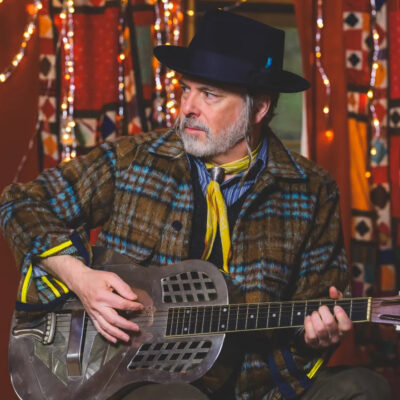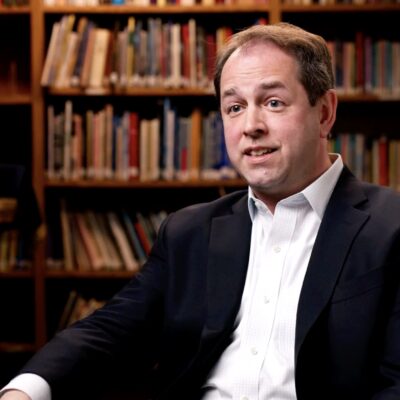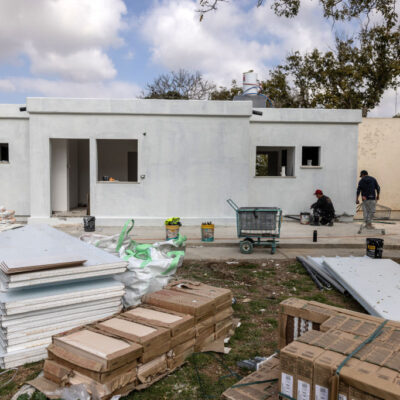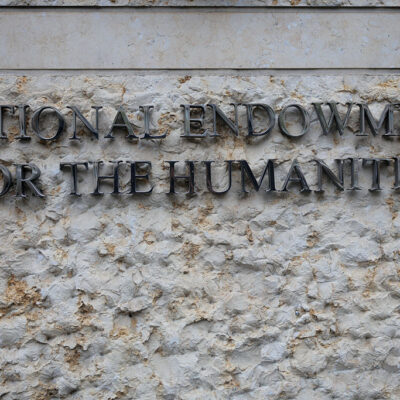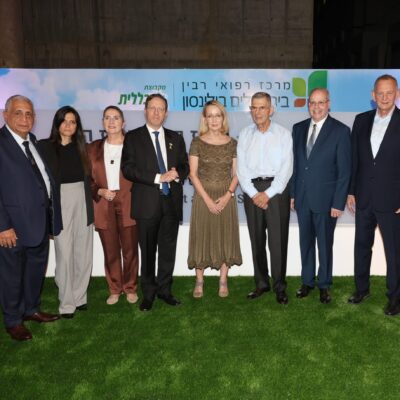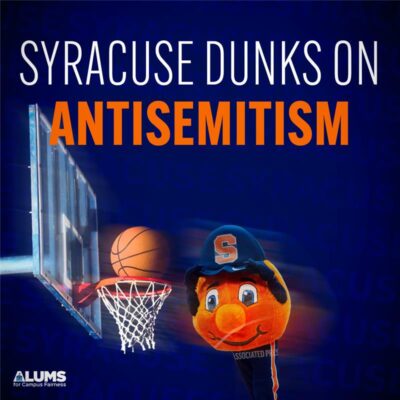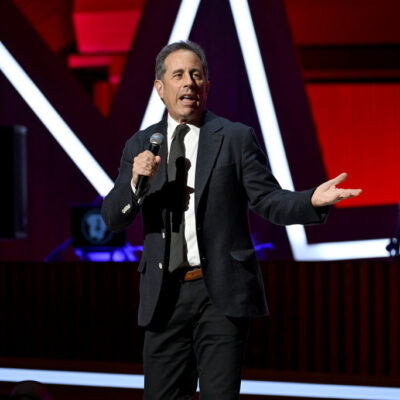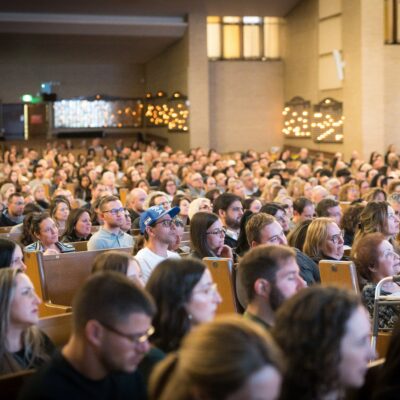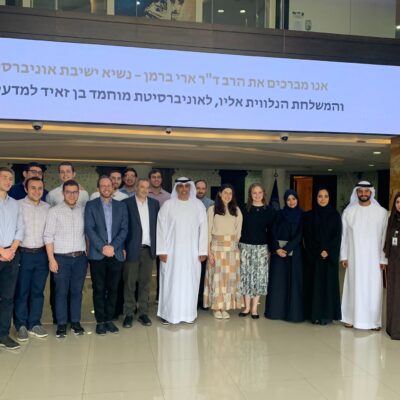Opinion
Renewing our Vows: A New Approach to Intermarriage

By Rabbi Michael Knopf
Recently, my congregation’s lay leadership voted to permit its clergy to officiate at marriages between a Jewish individual and a partner from another background (with some important conditions), if and when the Conservative movement’s Rabbinical Assembly and the Cantorial Assembly change their current Standards of Practice forbidding their members to officiate at such events.
I both championed and fully support my congregation’s move. We made our decision because we believe that the Conservative movement’s rule prohibiting its rabbis from officiating at intermarriages is rooted in outmoded halakhic reasoning, conclusions not corroborated by the empirical evidence, and failed strategy.
What follows is the reasoning that led me and us to this conclusion and momentous change. I am grateful to my dear friend and colleague Rabbi Jesse Olitzky for being my hevruta in studying about and thinking through this issue. I publish this essay in the hope that my argument might encourage my colleagues and other Conservative congregations to follow suit.
I will begin by saying that I am a proud Conservative rabbi. I have been nurtured by Conservative movement organizations and institutions my entire life. I am honored to serve a vibrant and thriving Conservative-affiliated congregation. And I am fully committed to the strength and vitality of my movement’s approach to Judaism.
But I believe the Conservative movement’s stance on intermarriage is wrong, and that it’s time for a change. My colleagues and I should be permitted to officiate at wedding ceremonies between a Jew and someone from another background in instances where it can be reasonably presumed that the Jewish partner will remain Jewishly committed, where insofar as a religion is practiced in the household it will be Judaism, and where any children produced by the union will be raised as Jews.
I have been drawn to this conclusion by reexamining the halakhic reasoning, the social science, and the strategic thinking that produced the Conservative movement’s ban in the first place.
The ban on Conservative rabbis officiating, participating in, and even attending wedding ceremonies between a Jew and someone from another background has been in place for over 40 years (however, it should be noted that, as of October 2018, the Rabbinical Assembly notified its members that, as it turns out, there was never officially a prohibition on attending interfaith wedding ceremonies, and now Conservative rabbis may feel free to do so).
The ban, called a “Standard of Rabbinic Practice,” was established around the same time as the first survey on American Jewish population trends reported a 23% spike in the intermarriage rate among American Jews since 1960. This study prompted widespread fears that the American Jewish community was intermarrying itself into non-existence. For example, the Board of Jewish Education of Greater New York responded to the study by sponsoring a full-page advertisement in The New York Times declaring, “If you’re Jewish, chances are your grandchild won’t be.” The Conservative rabbinate shared these fears, and argued that the best way to prevent the disappearance of American Jewry was to take a firm stance against intermarriage.
The basis for this fear is the presumption that when a Jew marries someone of another background s/he will be swayed away from his/her tradition and community, and/or the children from such a union will be raised with little or no meaningful Jewish identity, attachment, beliefs, or behaviors.
This fear has deep roots. There is a biblical passage that many have interpreted as banning intermarriage because “they will turn your children away from Me to worship other gods” (Deuteronomy 7:4). And the fear has remarkable resilience. In 1990, the lead researcher of an American Jewish population study wrote, “most children of mixed marriages will be lost to Judaism.”
This fear, however, was and is misguided.
As intermarriage has shifted in our time from crisis to simple fact of contemporary Jewish life (indeed, on a personal level, many of my own extended family members are intermarried), many have come to realize that intermarriage is not a threat to Jewish continuity, but rather an opportunity for Jewish flourishing and vitality.
A growing body of research challenges the equation between intermarriage and Jewish erosion, and points us toward an altogether new paradigm.
A recent Brandeis University study argues that Jewish identity, practice, and affiliation remains strong in intermarried households where the couple has exposure to Jewish education, observance, and community. Research out of Brown University adds that, when Jewish organizations and institutions adopt more inclusive postures toward intermarried couples and their children, those couples and their children “[remain] Jewish.”
In other words, who one marries doesn’t determine the Jewishness of one’s household as much as does Jewish learning and Jewish living. When Jewish organizations and institutions reach out to and include intermarried families in Jewish life, they become as likely as in-married families to remain Jewishly attached.
Conversely, when the Jewish community adopts an exclusionary posture toward intermarried families, we miss an opportunity to strengthen the Jewish partner’s connection to his/her tradition. Similarly, such policies inhibit our ability to bring the partner from a different background into deeper and more meaningful relationships with Jewish tradition and community.
In my experience as a congregational rabbi who strives to include interfaith families in my community, I have often found that partners from different backgrounds, even those who never have any intention of converting to Judaism, become highly involved in Jewish life when they feel invited to do so. They become active in their children’s Jewish upbringing, from bringing them to Religious School or Day School, to attending Shabbat services, to participating in Jewish rituals at home and in the synagogue. The exclusionary posture of the established Jewish community towards interfaith families does not only push away the Jewish partner from his or her tradition. It also prevents the partner from a different background from experiencing the beauty, richness, and joy of Judaism. But when we welcome and include intermarried couples and their families into our communities in every possible way, we substantially increase the likelihood that Judaism will remain a core part of their family’s life.
That fact – that the Jewishness of intermarried couples and their families is directly related to how much we as Jewish leaders reach out to and include them in Jewish life and community – calls upon us to reexamine our stance about the wedding ceremony itself.
In recent years, researchers have increasingly focused on the impact of Jewish wedding ceremonies on the Jewishness of intermarried couples and their children. It turns out that the wedding ceremony itself represents a unique opportunity to strengthen an interfaith couple’s Jewish identity and ties.
The data suggests that intermarried couples married by a sole Jewish clergy officiant are more highly engaged in Jewish life than intermarried couples who had other forms of officiation. They are three times more likely to raise Jewish children compared to intermarried couples who married under other auspices, and on multiple measures of Jewish engagement, including synagogue involvement, intermarried couples whose weddings were presided over by a Jewish clergy officiant look very similar to the in-married.
This, in many ways, is not surprising. As the authors of a recent study on the subject put it, “Weddings are a pivotal moment in the life of all couples, but particularly so for intermarrying spouses. The process leading up to the ceremony can provide a unique opportunity for the couple to articulate their religious identity, commitments, and connections to a larger community.”
This analysis comports with my experience. When I agree to officiate at any couple’s wedding, I usually meet with the couple no fewer than five times. At these meetings, we discuss the ceremony, along with its liturgy, its symbols, and its multifaceted meanings, in great detail. We talk about the unique challenges and opportunities of married life, and I work with every couple to improve their communications skills and strengthen their bonds. And, not unimportantly, I talk about religion and values, and how each couple might uniquely enrich their and their families’ lives through Judaism and involvement with the Jewish community.
During these meetings, I form a close relationship with each couple. Because of the unique opportunity to spend such quality time together, and because of the intimacy of the context, the time leading up to a couple’s wedding is, I feel, when I truly become their rabbi. Additionally, I typically encourage couples to hold a celebration announcing their forthcoming wedding, an aufruf, at my synagogue during Shabbat services. In this way, my community forges or deepens their connections with these couples and vice-versa. In my experience, planning a wedding with a couple is a truly singular opportunity to form strong Jewish connections with them, an opportunity that is not easily matched at any other point in a couple’s life, including when they have children or when their children become Bar or Bat Mitzvah.
For these reasons and more, officiating at a couple’s wedding is an act of Jewish welcoming, engagement, and relationship-building without parallel.
Furthermore, the fact that an interfaith couple seeks out a rabbi to officiate a solely Jewish wedding ceremony is in itself not insignificant. More and more, Americans are asking friends and family members to officiate their weddings instead of seeking out a member of the clergy. So, whether a couple asks me to officiate because the Jewish partner grew up in my shul, or called me out of the blue because they need an officiant and heard good things about my officiation, or are just trying to make their Jewish grandmother happy, I do not take for granted the fact that a couple wanted a rabbi to preside over the most important moment of their lives, and that they wanted that moment to be infused with Jewish symbols and rituals. Given the realities of our time, we can indeed see the simple act of reaching out to a rabbi to officiate at a wedding as a desire to maintain a strong connection to Jewish ritual, tradition, and practice.
I believe, therefore, that the time has come for a change in the Conservative movement’s thinking and approach. While it is true that the classical understanding of the halakhic tradition regards intermarriage as forbidden, our movement has long held that “where there is a rabbinic will, there is a halakhic way.” The question, then, is not whether intermarriage is compatible with halakhic norms as we’ve inherited them, but rather whether there is a desire among the Conservative rabbinate to understand and apply halakhah in a way that permits intermarriage.
I believe there are compelling reasons to do so. As I pointed out above, the strategy of holding fast to the prohibition on rabbinic officiation at intermarriages while encouraging endogamy and conversions has not stopped Jews from intermarrying. If anything, it has driven Jews, in particular Jewish partners in interfaith relationships, to leave our congregations and our movement, and in many cases to divest from Jewish life altogether. It has turned out to be a historic and colossal missed opportunity to strengthen the Jewish connections and commitments of Jews (and their partners from other backgrounds). It has driven Jewish family members of intermarried couples – parents and grandparents – away from our synagogues and movement, unwelcoming as we have been of their children. And, most painfully, this strategy has turned away untold numbers of people from different backgrounds who, while perhaps not ready to convert to Judaism at the time of their weddings, might have eventually discovered joy and meaning in Jewish life, and would have, down the line, been moved to convert.
If those reasons are sufficient motivation for the rabbinic will, as I believe they are, what would be the halakhic way?
According to inherited rabbinic tradition, the prohibition on intermarriage originates in Deut. 7:1-4. Understood simply, this passage forbids Israelites from marrying Canaanites because such relationships might lead the Israelite spouse (and/or any children produced by the union) to adopt the Canaanite spouse/parent’s religion. The Torah does not forbid all intermarriages, for any reason. Rather, the Torah restricts intermarriage between Jews and certain people of other backgrounds, and for a specific reason. Where the person of another background in question is not one explicitly banned, and where the rationale no longer holds, the prohibition cannot be invoked.
The prohibition of Deut. 7:1-4 does not – and was never intended to – apply in instances where it can be reasonably presumed that the Jewish partner will remain Jewishly committed, where insofar as a religion is practiced in the household it is Judaism, and where any children produced by the union will be raised as Jews.
I recognize, of course, that to understand the biblical commandment this way would overturn the interpretation and application of the passage by many ancient and medieval rabbis, who expanded the prohibition to include all people from other backgrounds. In the halakhic tradition, this reinterpretation would be a radical legal move, and one not to be undertaken lightly.
But I believe current circumstances warrant such a step. The halakhic tradition recognizes that, sometimes, desperate times call for desperate measures. The Talmud teaches that when maintaining a prohibition would erode the Jewish people’s commitment to the tradition as a whole, even a clear biblical prohibition can be set aside. This principle is known as “hora’at sha’ah,” the demands of the moment.
Historically, halakhic authorities in the Conservative movement have been willing to invoke the hora’at sha’ah principle, uprooting biblical prohibitions when circumstances warranted. We already celebrate and sanctify relationships that were previously deemed as biblically or rabbinical prohibited, and we have even boldly and beautifully created new ceremonies and legal contracts for these relationships.
Fortunately, in this case, we needn’t go so far as to abrogate a biblical prohibition. Instead, we Conservative rabbis need only invoke our authority (authority we have long maintained we possess) to overturn the classical interpretation and application of the passage by rabbis of bygone ages who expanded the original biblical prohibition.
For all the reasons outlined above, I believe present circumstances warrant invoking the “hora’at sha’ah” principle with respect to intermarriage, overturning rabbinic precedent to restore and uphold the plain and limited meaning of the prohibition in Deut. 7:1-4. This means that when a couple affirms Judaism will be the sole religion practiced in their household and that any children produced by the union will be raised as Jews, the union is not prohibited by Jewish law, and Conservative rabbis ought to be permitted to officiate at the wedding.
How would a rabbi know and ensure that a couple is prepared to make and adhere to such an affirmation? Of course, nothing in life is certain. People can change during the long span of a marriage. And people can sometimes deceive in order to get what they want. However, this is as true of endogamous couples as it is of interfaith couples. There is no way to know for sure whether an interfaith couple will ultimately build a faithful Jewish home together, just as there is no way to know for sure whether a Jewish couple will do so.
However, the social science strongly suggests that when a couple seeks out a rabbi to officiate their wedding and agrees to a ceremony conducted exclusively by Jewish clergy and solely with Jewish rites, a rabbi can both predict and ensure that the couple intends to build an exclusively Jewish household. Conscientious rabbis can further ascertain a couple’s intentions in the course of pre-marital conversations and planning, as well as provide meaningful support and guidance about building a Jewish home and life together. I believe that my colleagues and I are trained to have the sensitivity and judgment necessary to develop appropriate standards and criteria for determining a couple’s Jewish commitments. And when a couple does demonstrate that their household will be a Jewish one, my colleagues and I should be able to sanctify their union.
Of course, I do not believe Conservative rabbis should be required to officiate intermarriages. I admire and respect my colleagues who, for various legitimate reasons, will continue refuse to do so. I simply believe my colleagues and I should be permitted, that we should have the choice, that our movement’s leadership ought to respect our understanding of tradition, sensitivity to people’s needs, and halakhic authority, enabling us to do what we believe is right in this matter, as we can in every other matter that comes before us as rabbis. As a proud Conservative rabbi who loves Conservative Judaism and believes it has much to offer the Jewish people and humanity, I do not want to, nor do I believe I should have to, leave my movement, or risk damaging or splitting it, over this issue.
At the same time, one of the hallmarks of Conservative Judaism has always been “tradition and change.” Sometimes, change is initiated from the top-down. And sometimes, change can and must be driven from the grassroots, by visionary congregations and clergy pioneering a new path. I called for and embrace my congregation’s new policy, which will enable me to officiate at weddings between a Jew and someone of another background when the above criteria are met, in that spirit. As soon as the Rabbinical Assembly changes its policies, I will joyfully and proudly officiate at such ceremonies. I hope other Conservative clergy and congregations will be inspired to declare publicly that they feel similarly, demonstrating to our movement’s leadership that rank-and-file clergy and congregations are ready for a new direction on this issue.
My sacred work as a rabbi is to help bring Jewish individuals closer to Torah, and to bring Torah closer to Jews. Jewish wedding ceremonies are significant opportunities to fulfill this rabbinic calling. My colleagues and I have missed too many of these opportunities, and for too long, shrinking in fear from an erosion narrative that could just as easily be seen as an opportunity paradigm.
The time has come for a new approach. In so doing, we will undertake a renewal of vows: a renewal of the vows we make as rabbis to strengthen the bonds between Jews and their tradition, and a renewal of the vows every individual Jew makes with God and Israel to perpetuate Torah from generation to generation.
Rabbi Michael Knopf is ?Rabbi of Temple Beth-El, Richmond, Virginia.

 Add EJP on Google
Add EJP on Google